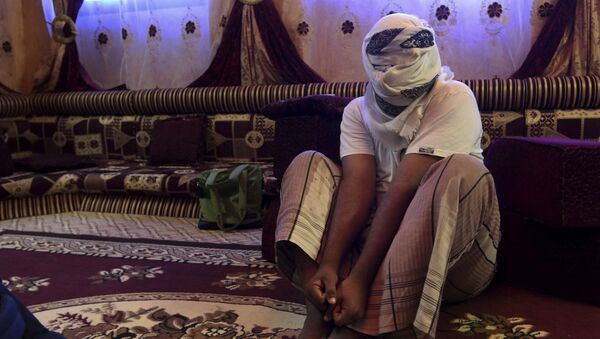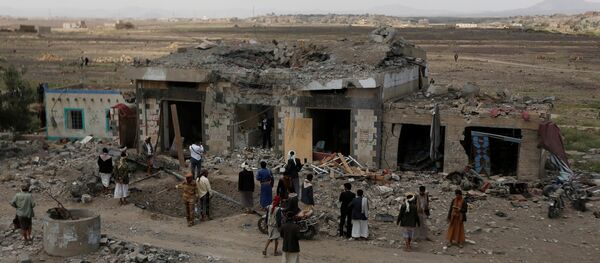Amnesty International, Human Rights Watch and 60 other human rights watchdogs from around the globe signed a letter to the UN council renewing calls to investigate alleged violations of international law in Yemen, where a Saudi-led coalition has battled Houthi rebels since 2015. The Saudis allege the Houthis receive substantial backing from their Iranian rivals. Daesh also has a presence in the war-torn nation through a group called ISIL-YP.
The US Navy has supported Saudi-coalition warplanes by refueling them in mid-air as they conduct bombing raids over Yemen, and US drone strikes have targeted terrorist elements in the country. The Saudi-led coalition includes the support of the United Arab Emirates, Bahrain, Kuwait, Jordan, Morocco, Egypt, Senegal and Sudan.
While the Pentagon does not disclose the location of drone strikes as a matter of policy, the Long War Journal reports as many as 240 Al Qaeda in the Arabian Peninsula (AQAP) militants have been killed by Predator strikes since 2002. Over a two-day period in March 2017, US unmanned aerial vehicles and conventional aircraft conducted more than 30 airstrikes in Yemen, according to published reports.
Shedding light on the alleged human rights violations in Yemen represents a step in the right direction, CODEPINK co-founder Madea Benjamin told Radio Sputnik Loud & Clear host Brian Becker on Wednesday.
“Anything we can do to bring attention to the situation, anything we can do to shame the Saudis for their horrendous acts that are killing people on a daily basis, anything we could to shame the United States for helping them and shine a light on what the people in Yemen are suffering through, is good,” Benjamin said.
In addition to the warring factions in the country, a resulting famine and a cholera outbreak are making basic survival for many Yemeni people precarious. According to data updated August 24 by the UN Office for the Coordination of Humanitarian Affairs, 540,000 suspected cholera cases have been reported in Yemen, leading to at least 2,000 deaths. Sixty percent of the Yemeni population, or about 17 million people, are classified as living in “food insecure” situations, the OCHA adds.
About 27 percent of Yemeni kids can’t go to school because those facilities are occupied by armed groups or have sustained too much conflict-related damage, UN data show, while 73 percent of teachers stopped getting paychecks after October 2016.
Journalists, Human Rights Watch and other groups have found that Houthi-Saleh forces “arbitrarily detained” or forcibly disappeared 65 people, including a child. Pro-Yemeni government and United Arab Emirates-supported security forces, meanwhile, detained or made disappear people in hundreds of cases, HRW reported in May.
US-backed UAE and Yemeni security forces operate 18 clandestine prisons where thousands of suspected jihadists have been tortured or gone missing, according to an Associated Press investigation.





